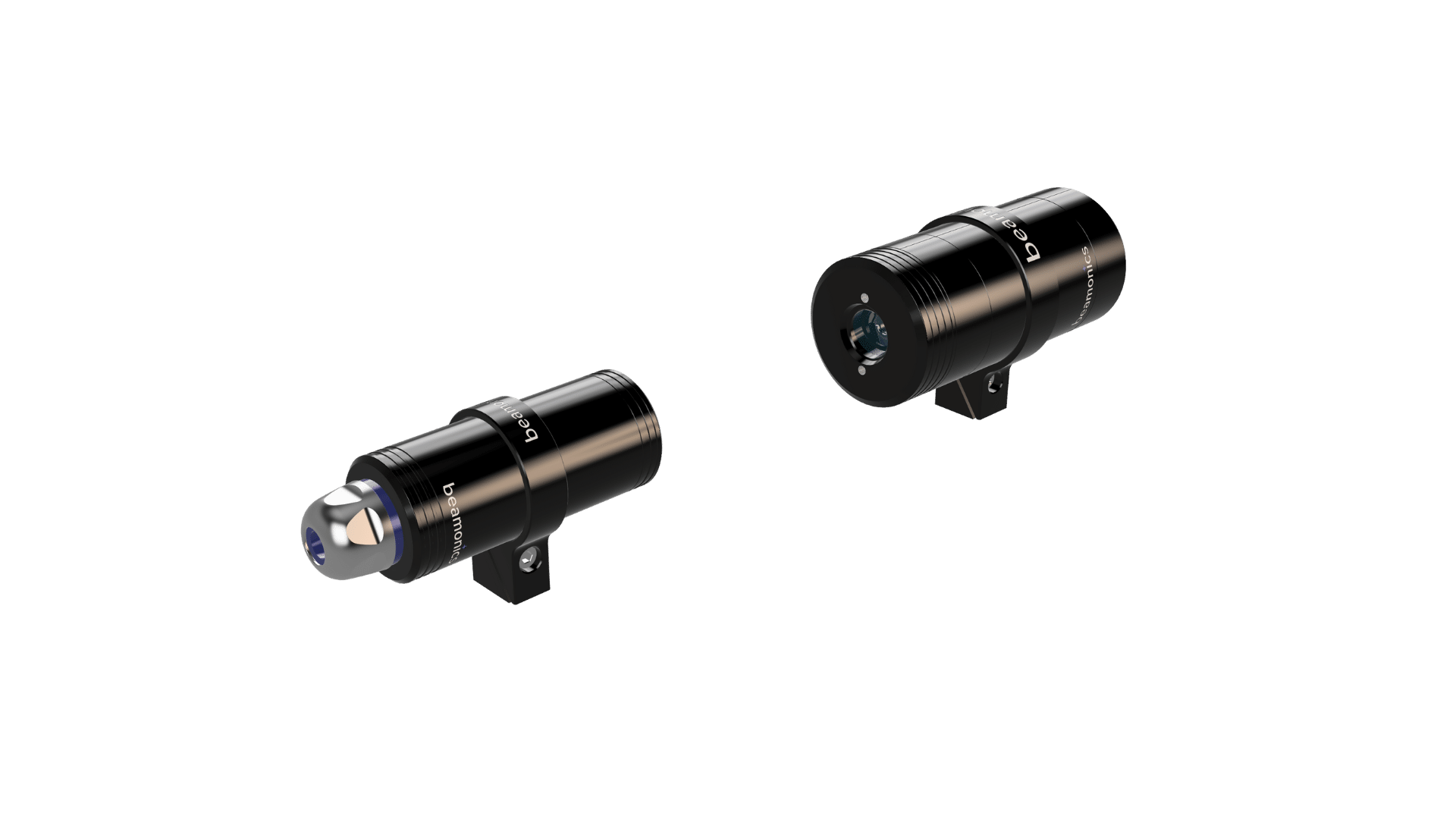WATCH OUR EXPLAINER VIDEO
Tunable Diode Laser Absorption Spectroscopy (TDLAS) Technology – Explained
BENEFITS AND FEAUTURES
Why Our Products Are Different
Precision Excellence
Real-time Insights
>1000 unique analyses per second, alerting you only when necessary.
Easily Adaptable
Real-time measurement and results in your preferred format.
Low Concentrations
Made in Sweden
Robust, sustainable & replaceable components for long-lasting use.
Ready to Use
Compact and turnkey devices, operational withinin seconds.
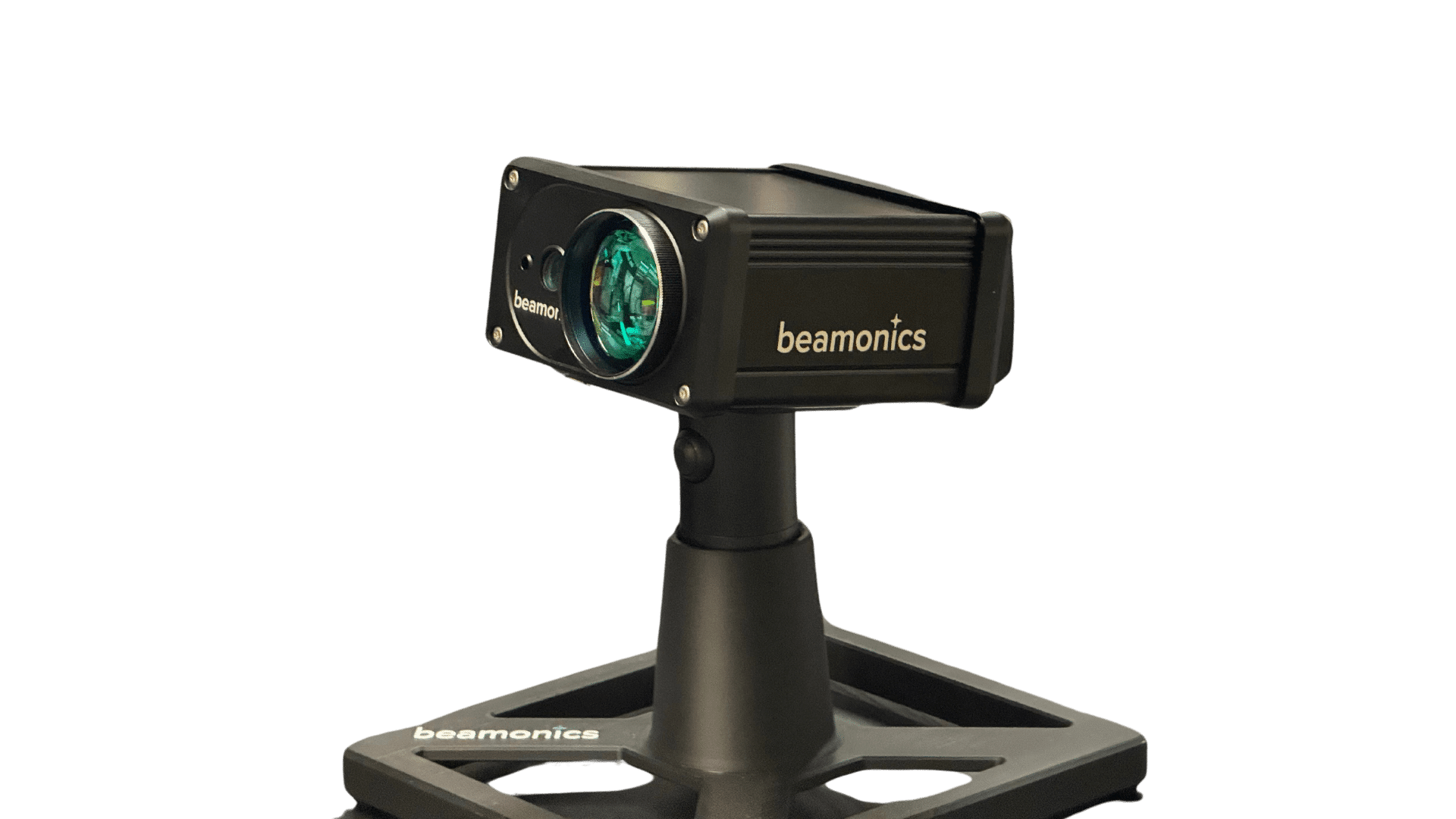
TDLAS Technology
Technology Comparisons
Sampled vs. In-Situ Gas Analysis: Which Approach Is Better?
Sampled vs In-Situ Gas Analysis: Which Approach Is Better? In...
How does TDLAS work?
The basic principle of TDLAS relies on absorption spectroscopy. Gas molecules absorb specific wavelengths of light, converting photon energy into heat. Each gas has a unique “fingerprint” of absorption lines in the gas absorption spectrum.
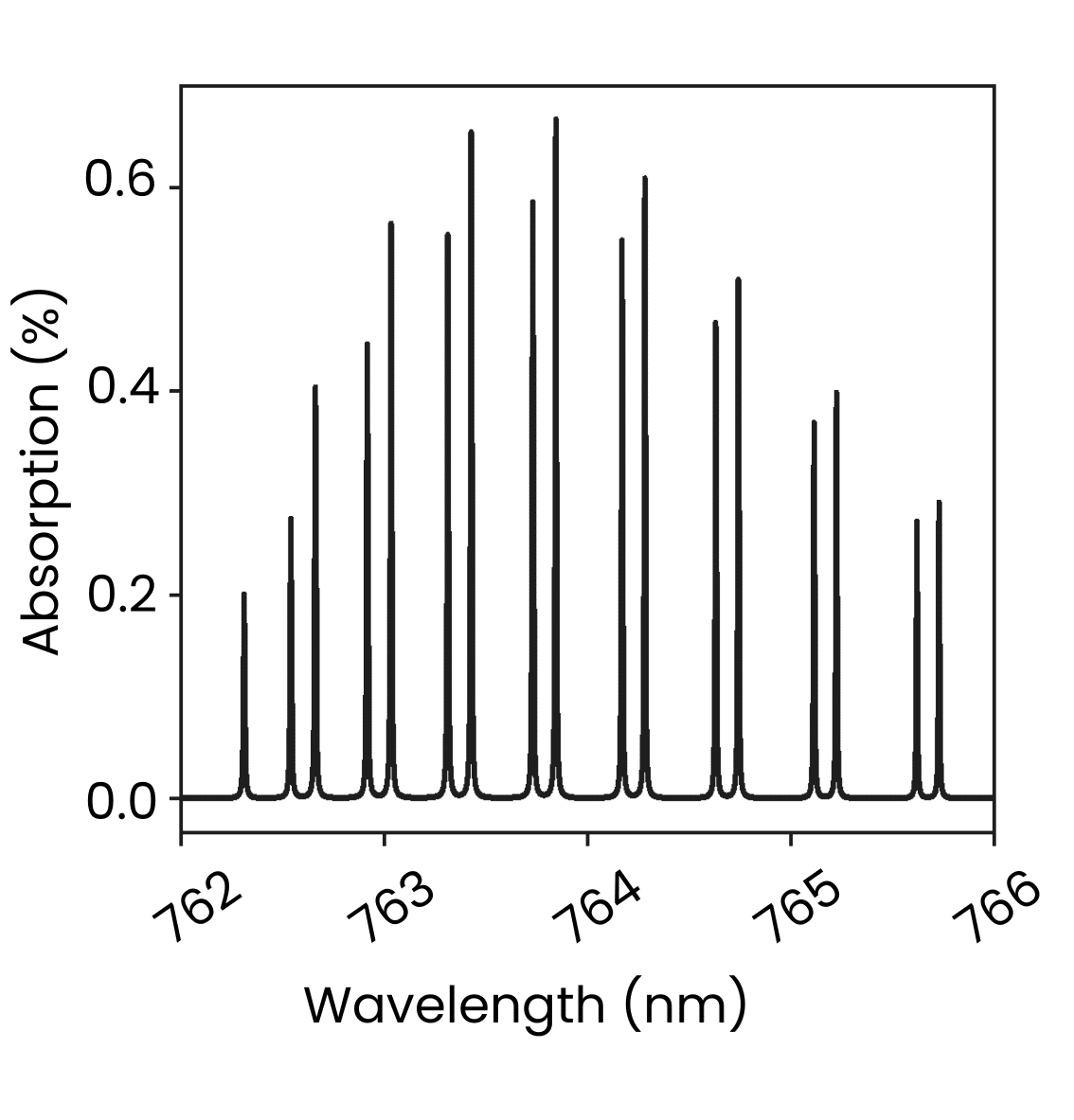
Since we know the light intensity from the transmitter, any absorption by gas molecules reduces the light reaching the detector. This absorption allows us to calculate the gas concentration, temperature, and pressure.
For each target gas, we optimize the light source based on its absorption spectrum, selecting the wavelength with the highest absorption and no interference from other gases.
The principle is similar to all TDLAS systems: tuning a narrow-band laser by adjusting the current to scan the selected absorption wavelength.
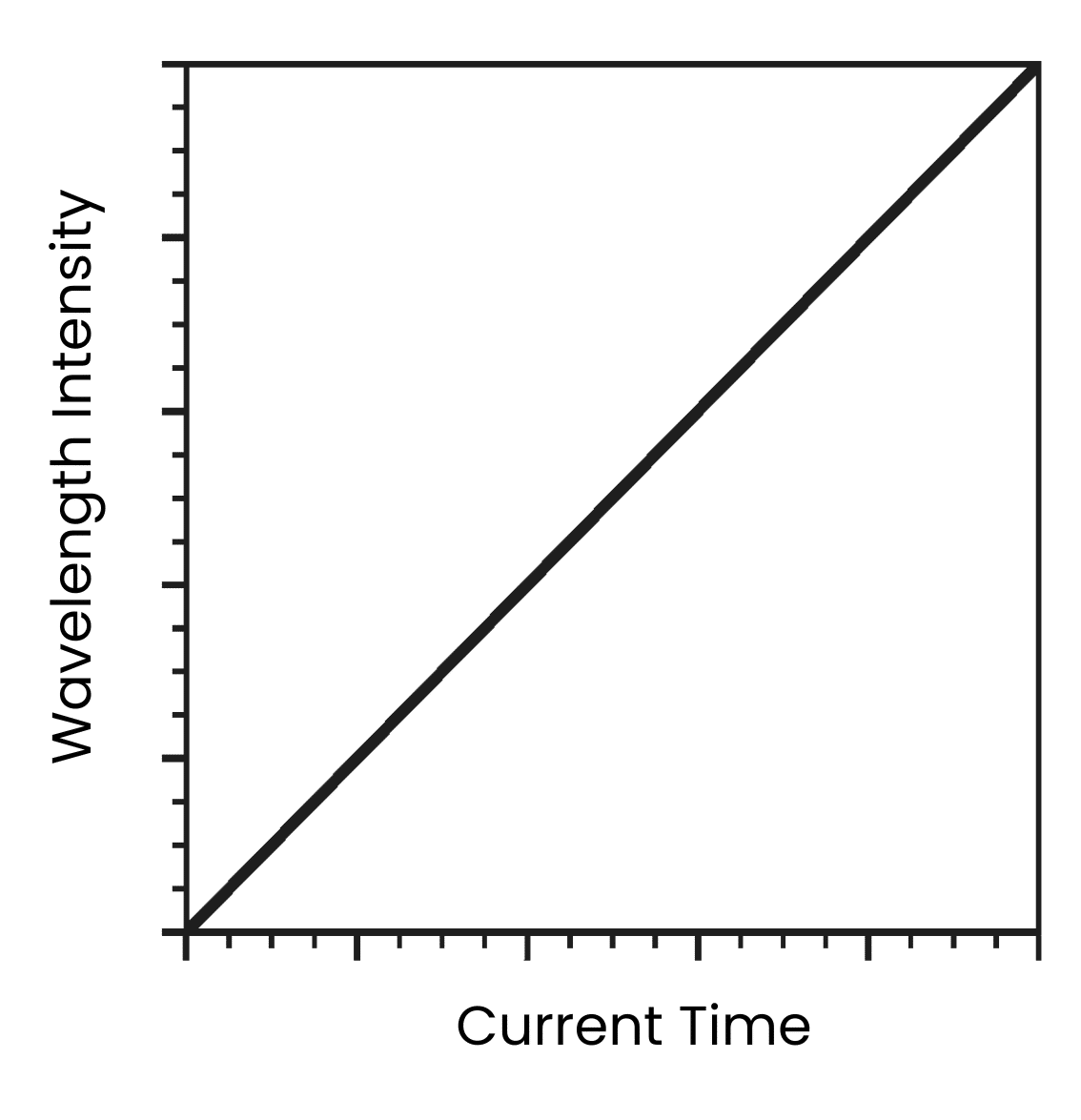
If the target gas is present we will see a small dip in the light intensity reaching the receiver at that specific wavelength:
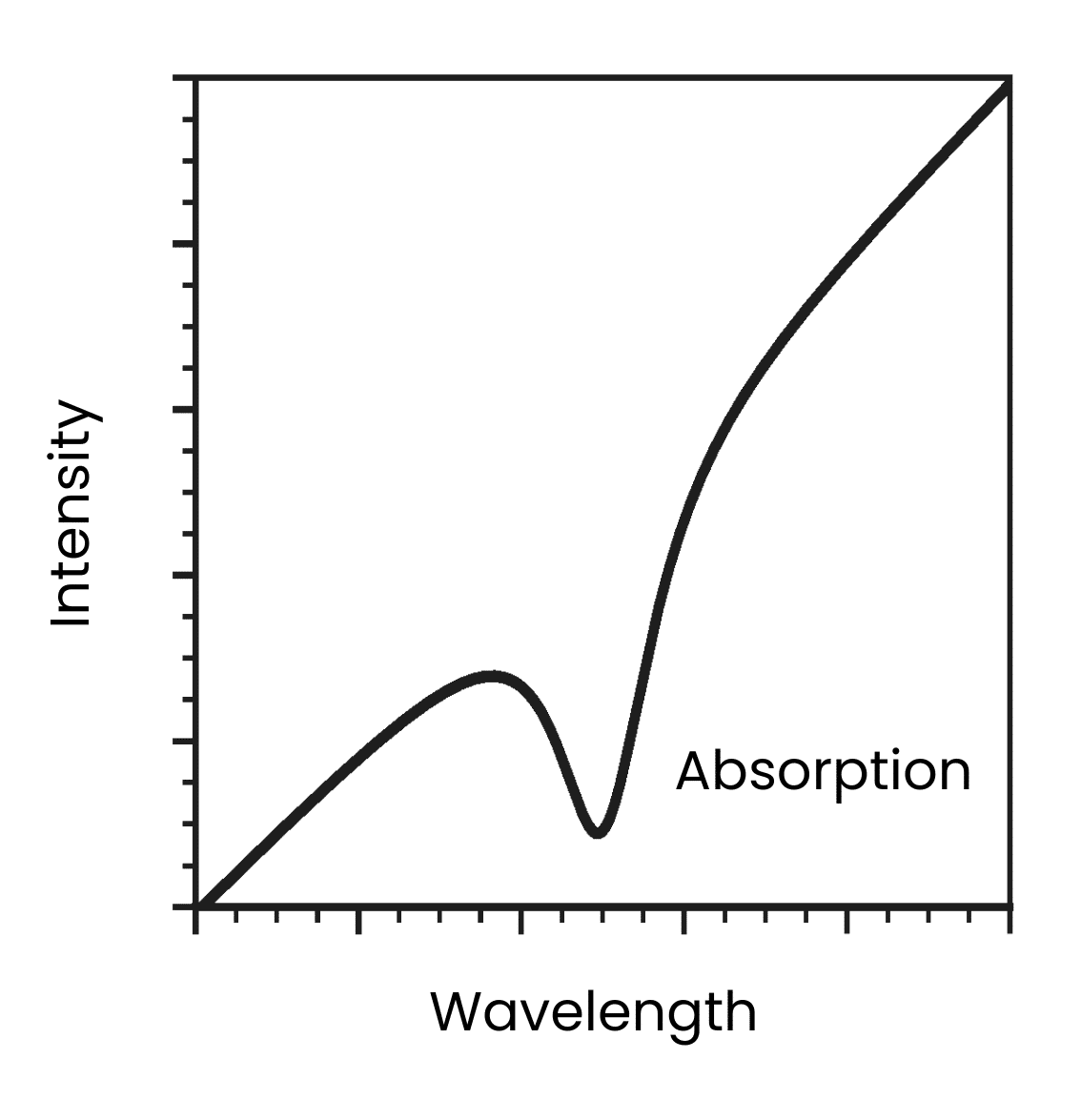
This dip in the measurement of light intensity can then be analysed, the amplitude and width of the curve correspond to the concentration, temperature and pressure:
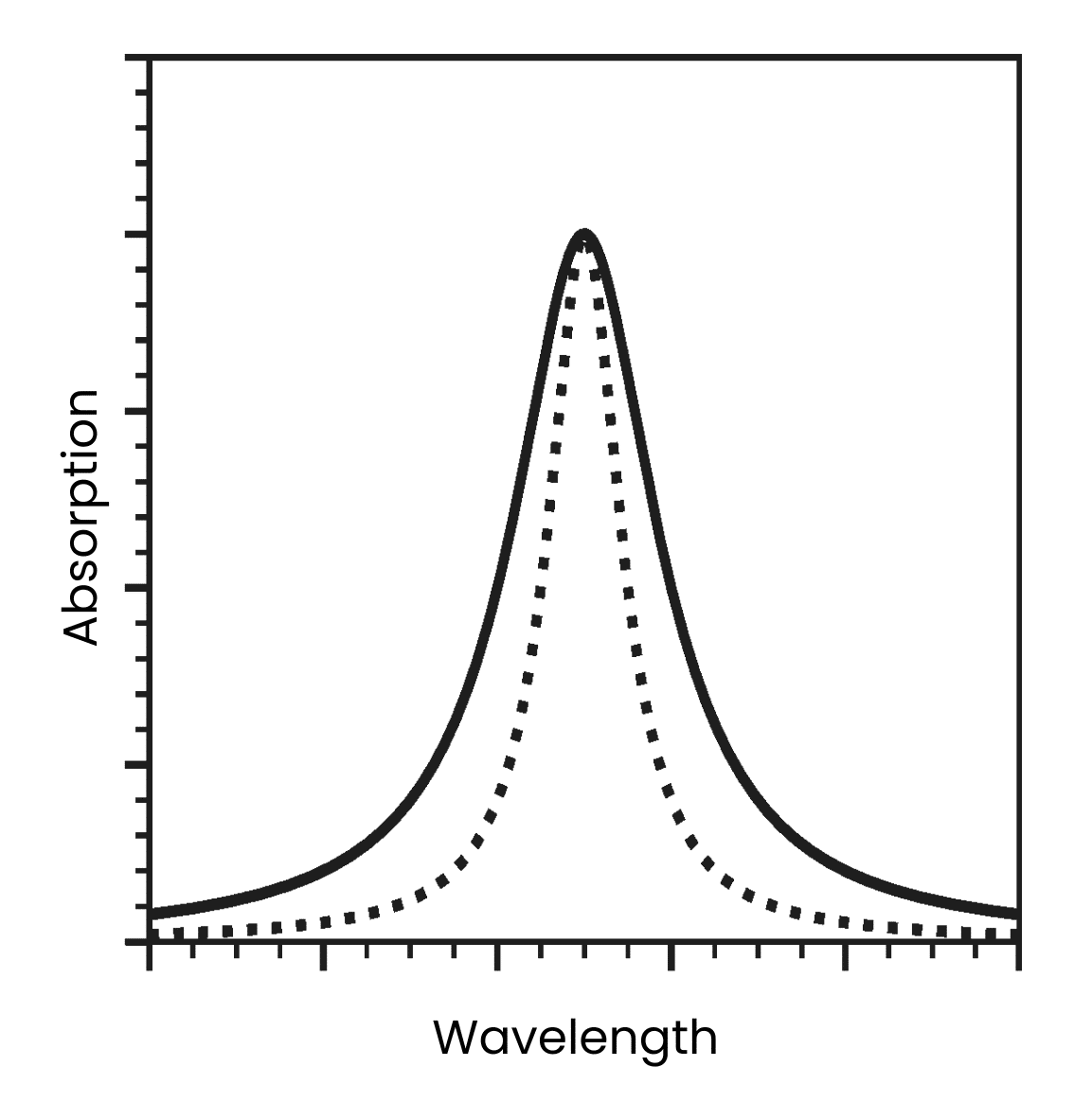
MORE READING
You May Also Like
TDLAS Glossary: Essential Terms in Gas Analysis
TDLAS Glossary: Essential Terms in Gas Analysis Tunable Diode...
The Basics of TDLAS Technology: A Complete Guide
Tunable Diode Laser Absorption Spectroscopy (TDLAS) is a highly...
How to Select the Right Gas Analyzer for Your Needs
How to Select the Right Gas Analyzer for Your Needs Choosing...
Gas Analysis with TDLAS in Low-Light Transmission Environments
TDLAS Gas Analysis in Low-Light Transmission Environments Gas...







